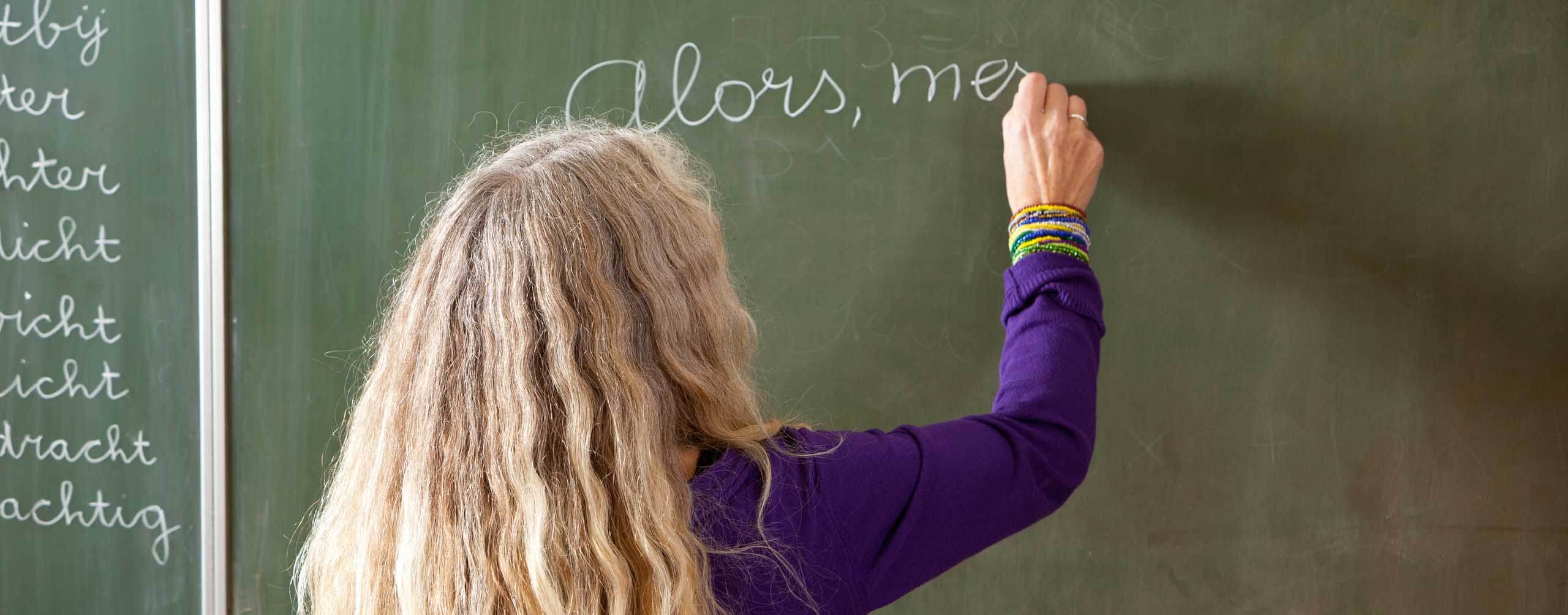
Romance Languages
College of Liberal Arts and Sciences
The Department of Modern Languages and Classics prepares students to communicate with and understand people from different cultures, both abroad and here at home.
Students in the Department of Modern Languages and Classics may pursue the B.A. in French, Spanish, or Romance Languages (French and Spanish) as well as minor programs in French, Spanish, and Professional Languages (a combination of French and Spanish). Students can also earn a Certificate of Proficiency in French, Spanish, or German.
Courses are offered at the beginning and intermediate levels in German and beginning level Arabic, Hebrew, Latin and Mandarin. Irish Gaelic, Italian, Japanese, Korean, Russian and Brazilian Portuguese are part of the Critical Languages (VOX) program, which focuses on developing conversational skill and follows the National Association of Self- Instructional Language Programs. Classes meet with a native speaker tutor.
In teaching the modern languages, faculty use a variety of methods and approaches at all levels to develop listening, speaking, reading and writing. At the advanced level, students take content courses in literature, culture and linguistics, as well as language. Our programs have as their primary goals the development of communicative competence, cultural understanding and critical thinking skills as well as an appreciation for diversity of perspectives and ideas.
Many languages are useful in today’s global economy. U.S. businesses are expanding around the globe, and scientists increasingly work on multinational projects. The choice of language(s) is yours, and is determined by your interests. Once you are competent in a second language, it is much easier to learn a third and then a fourth.
Our students broaden their cultural and intellectual horizons by developing bi- and multilingual critical thinking skills as they prepare for careers in commerce, education, government, engineering, science, art, law, NGOs, or in the hospitality and other service industries. Most importantly, our students indulge their passion for language, culture, and the humanities.
While Latin is no longer a spoken language, gaining knowledge of how it is structured provides a better understanding of other languages, including English. Latin is the basis for many specialized terms and has been a language of science and philosophy for centuries. New words continue to be coined from Latin roots every year to standardize vocabulary in the increasingly multicultural, multilingual worlds of science and law.
Carlos Villacorta
Department Chair, Associate Professor of Spanish
Williams Hall, Room 201
207.581.2072 | carlos.villacorta@maine.edu
Romance Languages
College of Liberal Arts and Sciences
Williams Hall, Room 201
207.581.2072
